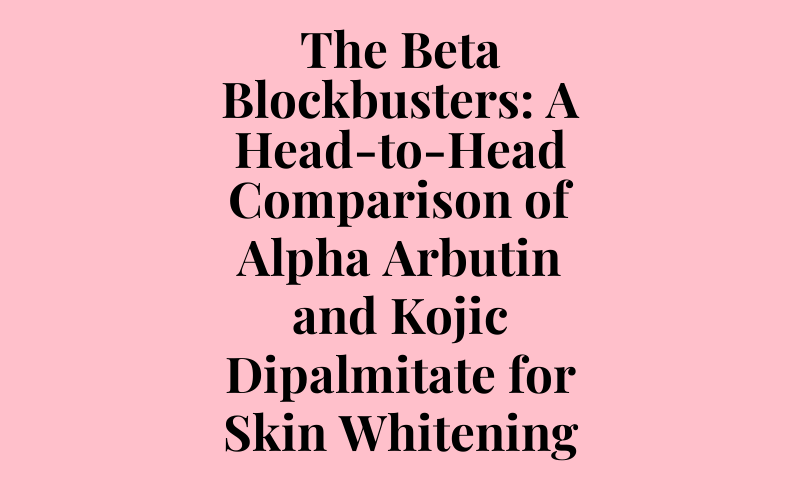Achieving a flawless, even-toned complexion is a common skincare goal. With numerous skin whitening ingredients available, selecting the right one can be challenging. This article compares two popular ingredients, alpha arbutin and kojic dipalmitate, analyzing their effectiveness, benefits, and potential drawbacks to help you make an informed choice.
Table of Contents
What Are Alpha Arbutin and Kojic Dipalmitate?
Alpha arbutin and kojic dipalmitate are both plant-derived ingredients known for their melanin-inhibiting properties, but they function in distinct ways.
- Alpha Arbutin is extracted from bearberry (Arctostaphylos uva-ursi) and is a beta-glucuronic acid derivative. It inhibits the enzyme tyrosinase, reducing melanin production and helping to fade dark spots, hyperpigmentation, and freckles.
- Kojic Dipalmitate is derived from the fungus Trametes elegans and works by reducing melanin synthesis while dispersing existing pigment. This results in a more even skin tone.
How Do They Work for Skin Whitening?
Both ingredients interfere with melanin production but through slightly different mechanisms:
- Alpha Arbutin blocks tyrosinase activity, preventing the conversion of tyrosine into melanin. This reduces overall melanin production and leads to lighter skin.
- Kojic Dipalmitate decreases melanin synthesis and helps distribute existing pigment more evenly, improving overall skin tone.
Benefits and Drawbacks
Both ingredients offer unique advantages and limitations:
Alpha Arbutin
Benefits:
- Effectively reduces melanin production
- Gentle and suitable for most skin types
- Safe for both short- and long-term use
Drawbacks:
- Results may take time to appear
- May cause mild irritation in rare cases
- Less effective for severe hyperpigmentation
Kojic Dipalmitate
Benefits:
- May provide faster results than alpha arbutin
- Helps fade hyperpigmentation and freckles
- Can be combined with other whitening agents for enhanced effects
Drawbacks:
- Can be more expensive than alpha arbutin-based products
- May cause irritation and redness
- Not ideal for sensitive skin
Final Thoughts
Both alpha arbutin and kojic dipalmitate are effective skin-brightening agents, but their suitability depends on your skin type and desired results. If you have sensitive skin and seek gradual improvements, alpha arbutin is a great choice. For faster results and more intensive whitening, kojic dipalmitate may be more effective. Always perform a patch test before using new products to minimize the risk of irritation.
Summary
| Ingredient | Mechanism of Action | Benefits | Drawbacks |
|---|---|---|---|
| Alpha Arbutin | Inhibits tyrosinase | Gentler, suitable for most skin types | May not produce immediate results |
| Kojic Dipalmitate | Reduces melanin production & disperses existing pigment | Can provide faster results, reduces hyperpigmentation | Can cause skin irritation |
Recommended Products
-
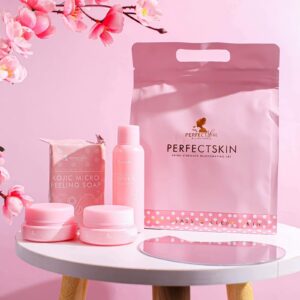 Perfect Skin Extra Strength Rejuvenating SetKD7.000
Perfect Skin Extra Strength Rejuvenating SetKD7.000 -
Product on sale
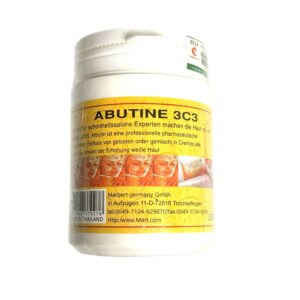 Abutine 3C3 Cream 250gOriginal price was: KD8.000.KD7.000Current price is: KD7.000.
Abutine 3C3 Cream 250gOriginal price was: KD8.000.KD7.000Current price is: KD7.000. -
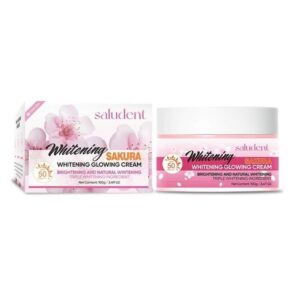 saludent, Whitening Sakura Whitening Glow Cream SPF50 100gKD6.000
saludent, Whitening Sakura Whitening Glow Cream SPF50 100gKD6.000 -
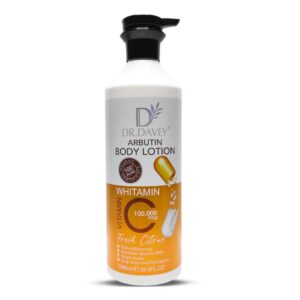 Dr. Davey Arbutin Body Lotion – 1080mlKD4.500
Dr. Davey Arbutin Body Lotion – 1080mlKD4.500 -
Product on sale
 Dark Spot Correcting Glow Cream 50mLOriginal price was: KD10.000.KD6.000Current price is: KD6.000.
Dark Spot Correcting Glow Cream 50mLOriginal price was: KD10.000.KD6.000Current price is: KD6.000. -
 Dr.Davey Kojic Body Lotion All Day Hydrating & Smoothing – 300mlKD2.490
Dr.Davey Kojic Body Lotion All Day Hydrating & Smoothing – 300mlKD2.490 -
 Dr. Davey Skin Whitening Face Cream – 50gKD3.990
Dr. Davey Skin Whitening Face Cream – 50gKD3.990 -
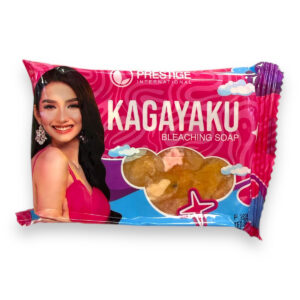 Prestige Kagayaku Bleaching Soap 75gKD2.000
Prestige Kagayaku Bleaching Soap 75gKD2.000 -
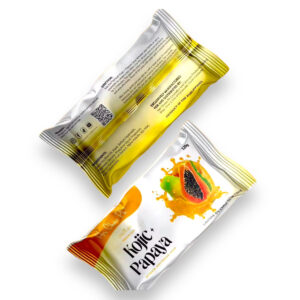 Her Choice Kojic Papaya Soap 120gKD2.500
Her Choice Kojic Papaya Soap 120gKD2.500

